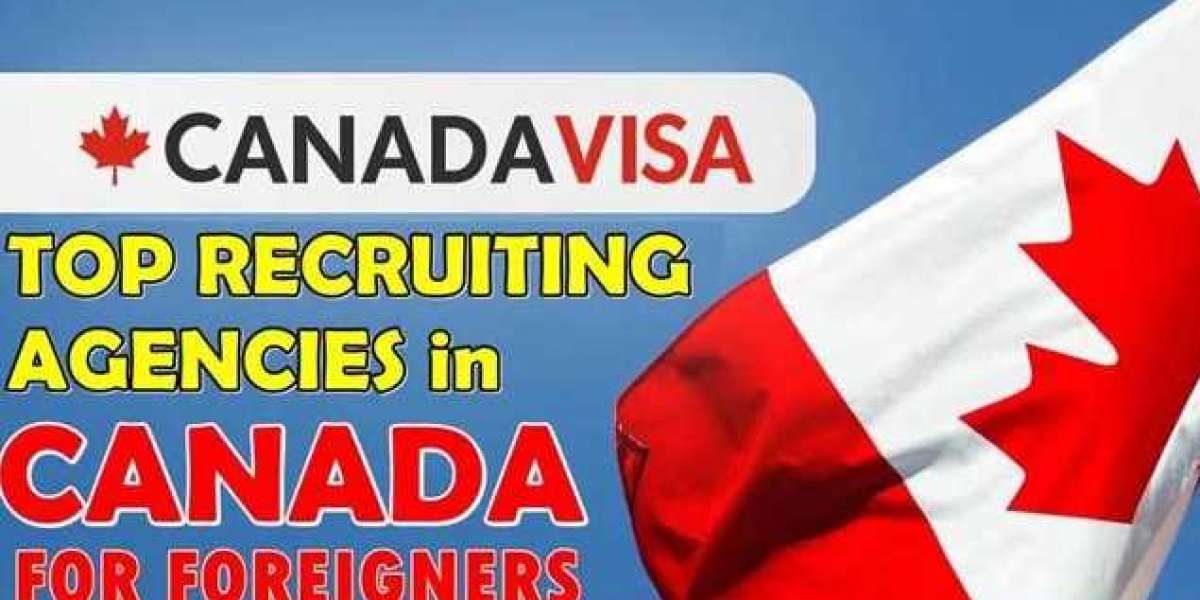You might already be aware that Canada is home to the Niagara Falls, the Rocky Mountains, maple syrup, and ice hockey. It also has the longest coastline in the world. Did you know that the country that is ranked second in terms of land area also has a low crime rate and is consistently ranked as one of the top places in the world to live in terms of both peace and quality of life?
The fact that the primary language is English, with French being spoken predominately in the province of Quebec, is another major selling point for international residents. Cities such as Ottawa, Vancouver, Edmonton, Oakville, and St. Albert are among the most popular places in Canada for expatriates to settle.
Combine this with the warm and welcoming nature of its people, and it's easy to see why Canada is such a popular tourist destination.
Jobs in Canada
Canada's economy is the ninth largest in the world, and its gross domestic product is $1.64 trillion. The unemployment rate in Canada is 6.5%.
Some of the most important industries are:
- chemicals
- food products
- natural gas
- petroleum
- transportation equipment
- wood and paper products.
There are a number of industries in the country that are experiencing growth, including cryptocurrency, e-commerce, primary healthcare, mining for precious metals, oil drilling and gas extraction, and tourism.
POPULAR GRADUATE JOBS
- accountant
- electrical engineer
- HR manager
- merchandiser
- registered nurse

Skills shortages
Canada has a number of in demand occupations such as:
- accountants
- admin assistants
- engineers (aerospace, electrical)
- HR managers
- nurses
- pharmacists
- project managers
- vets
- web developers
- welders.
How to get a job in Canada
Although employers in Canada are more likely to give preference to hiring Canadian natives than they are to hiring foreign workers, job opportunities are open to anyone and are in most cases posted online. You can begin your search for employment at:
Networking can be extremely beneficial, so take advantage of any connections you may already have in the country, whether they are with family, friends, or people you work with.
You will fill out an initial application, which can be in the form of a resume or an online form, just like you would if you were applying for a job in the UK. In the event of success, this typically results in an interview. As was previously mentioned, prospective employers in Canada will expect to see a resume rather than the more commonplace CV and cover letter in the UK. A résumé is intended to be more succinct and should be modified for each job that is applied for.
Settlement.org provides visitors with a writing guide in addition to downloadable examples of their work.
Summer jobs
The vast majority of summer jobs in Canada are found in the hospitality industry or in summer camps; you can look for employment opportunities at the following places:
If you want to work during the summer in Canada, you'll need to apply for a working holiday visa through International Experience Canada (IEC).
Work in the tourism industry, for example at ski resorts, can also be considered a form of casual employment. Examples of such work include working in a vineyard or on a maple syrup farm.
APPLY FOR
- Canada plans to accept 1.45 million Nigerian and other migrants by 2025.
- Get a Job in Finland
- Australia jobs
- Canada work permit visa process
You might also give some thought to participating in volunteer work or placements in the nation if your finances permit it. This is an excellent opportunity for you to gain experience that you can put on your CV. See:
Teaching jobs
If you have a Bachelor's degree, a strong command of the English language, and some classroom experience under your belt, becoming an English tutor might be the ideal career path for you.
As a result of the fact that English is one of the official languages of Canada, the demand for international English teachers is relatively low. However, there are a number of opportunities in Canada's larger cities, such as Toronto and Vancouver, for Teaching English as a Foreign Language (TEFL). However, be warned that competition to secure one of these posts is fierce. Although Canadian citizens have a greater advantage when it comes to filling teaching positions, there are a number of opportunities for Teaching English as a Foreign Language (TEFL) in Canada's larger cities.
To obtain further information:
Internships
An internship provides students and recent graduates with the ideal opportunity to become fully immersed in the culture of Canada, while also enhancing their skills and demonstrating their worth to potential employers in a dynamic setting. To be eligible to participate in an internship in Canada, you will need to be in possession of the appropriate work permit or visa (see Canadian visas for more information).
If you are interested in obtaining an internship in Canada, the following are some good places to begin your search:
The BUNAC Vancouver Internship is designed for students and recent graduates who are comfortable communicating in English and can last for up to six months.
Internships are available to prospective candidates in the cities of Toronto, Vancouver, Montreal, Calgary, and Ottawa through Latitude International.
Canadian visas
To enter Canada, the vast majority of visitors need to obtain either a visa or an Electronic Travel Authorization (ETA). Visit the Government of Canada website, where you will be given a few questions to answer in order to determine whether or not you are eligible for the program.
Whoever plans to enter Canada must do so in possession of the appropriate travel documents and must be able to provide proof that they are one of the following:
- financially capable of supporting their trip
- a law-abiding citizen
- medically fit.
a law-abiding citizen who is physically and mentally healthy and has the financial means to support their trip.
For the most part, if you want to work in Canada, you will require either an open permit or an employer-specific permit, and you can determine which one is the better option for you by visiting the Government of Canada website. Different categories of work permits You should give some thought to submitting an application for permanent residency in Canada if you anticipate living there for more than a few years. Check in with Immigration and Citizenship to make sure you have the most up-to-date information regarding the rules and regulations surrounding residency, as they are subject to change.

Language requirements
The government of Canada recognizes both official languages. Both English and French are spoken among the local populace. A command of the English language is all that is required to get around in the vast majority of the provinces and cities in Canada. Although you are most likely to hear both English and French wherever you are based in Canada, the only province that is officially designated as French-speaking is Quebec.
In the event that English is not your native tongue, you will be required to demonstrate your level of fluency by passing a reputable online examination. The Government of Canada grants approval to two different English examinations:
- IELTS - International English Language Testing System
- CELPIP - Canadian English Language Proficiency Index Program
Explaining your qualifications to employers
Many potential employers won't have any trouble comprehending your credentials because the structure of the higher education system in Canada is extremely similar to that of the system in the United Kingdom.
In the event that you hold a job that is subject to regulations, you will be required to have your credentials evaluated. The regulatory bodies that govern each province and territory are different. If the nature of your job is not governed by any specific regulations, the determination of whether or not your qualifications are acceptable will typically be left up to the discretion of your employer.
Visit the Canadian Information Centre for International Credentials or the Government of Canada's credential assessment website for more details (CICIC).
Working life in Canada
Although the specifics will vary from company to company and role to role, you can expect to put in a total of 40 hours of work each week, Monday through Friday.
After one year of working for pay, employees are eligible for a minimum of two weeks' worth of annual leave; after six years of service, this number increases to three weeks.
There are five national holidays celebrated throughout Canada, including New Year's Day, Good Friday, Canada Day, Labour Day, and Christmas Day. Federal employees also get an additional six days off each year. Additionally, individual states, provinces, and territories all celebrate their very own one-of-a-kind holidays.
The national average salary in Canada is 54,000 Canadian dollars, which is equivalent to 31,400 British pounds. The minimum wage for any profession is determined by each individual province. While Toronto and Vancouver are considered to be expensive places to live, other areas such as Ottawa, Calgary, Edmonton, and Montreal are less so due to their lower cost of living. In general, the cost of living in Canada is lower than that of the United Kingdom and the United States.
Check out the Government of Canada's page on the Canadian income tax rates for individuals if you want more information about the tax system in Canada.





David06 3 w
Tty